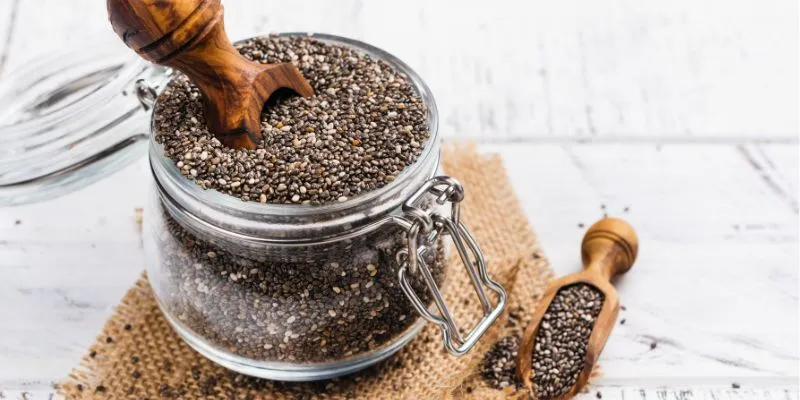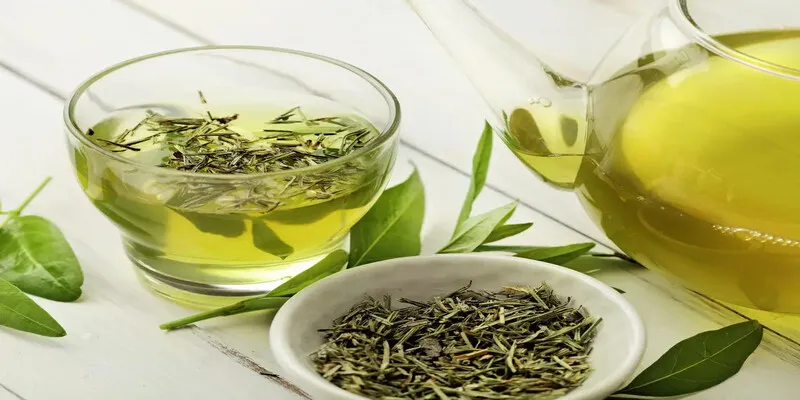Is Zucchini Good for You? Potential Health Benefits
Is zucchini good for you? Is it healthy for you?
Yes, zucchini is indeed beneficial for your health!
Zucchini, also known as courgette and baby marrow, is a low-carb, nutrient- rich fruit providing numerous health benefits. It’s definitely worth adding to your diet regularly.
Packed with fiber and antioxidants, zucchini promotes digestive health, improves eye health, boosts the immune system, and aids in weight management.
As a member of the Cucurbitaceae family, zucchini is related to melons, spaghetti squash, and cucumbers. Though often thought of as a vegetable, it is technically a fruit.
In this article, we’ll explore the nutrition facts of zucchini, its expert- backed health benefits, and how to incorporate it into your diet. Stay with us until the end!

Is Zucchini Healthy? Nutritional Value of Zucchini
Adding zucchini to your diet provides essential vitamins, minerals, and plant- based compounds beneficial for your overall health. A cup (223 grams) of cooked zucchini contains:
- 17 calories
- 3 grams of carbohydrates
- 1 gram of protein
- 1 gram of fiber
- 1 gram of sugar
- Less than one gram of fat
In terms of Reference Daily Intake (RDI) of vitamins and minerals, zucchini offers:
- Vitamin A: 40% of RDI
- Vitamin C: 14% of RDI
- Vitamin K: 9% of RDI
- Magnesium: 10% of RDI
- Manganese: 16% of RDI
- Potassium: 13% of RDI
- Folate: 8% of RDI
- Copper: 8% of RDI
- Phosphorus: 7% of RDI
- Vitamin B6: 7% of RDI
- Thiamine: 5% of RDI
Zucchini also contains small amounts of iron, calcium, zinc, and various B vitamins. Its high vitamin A content supports eye health and the immune system. Raw zucchini offers similar nutritional value to cooked zucchini, but with more vitamin C, as cooking reduces vitamin C content.

5 Potential Health Benefits of Zucchini
Here are some health benefits of including more zucchini in your diet:
Zucchini May Aid Weight Loss
Regular consumption of zucchini can aid in weight loss. This fruit is high in water and low in calories, helping you feel full longer. Its high fiber content also helps reduce hunger and manage appetite.
Studies consistently link high fruit and vegetable intake to weight loss and a slower rate of weight gain over time.
Thus, consuming low-carb vegetables with similar nutrition profiles to zucchini is beneficial for weight management.
Promotes Healthy Digestion
Zucchini is beneficial for digestion in several ways. It is rich in water, which can soften stools and improve digestion, reducing the likelihood of constipation. Additionally, its high insoluble fiber content adds bulk to stools, promoting easier passage through the gut, thus supporting gut health.
Soluble fiber in zucchini also nourishes gut bacteria, which produce short- chain fatty acids that feed your gut cells, promoting healthy digestion.
Rich in Antioxidants
Zucchini is high in antioxidants, which can protect against various health issues.
These beneficial plant compounds help shield your body from free radicals and unstable substances. An imbalance of these substances can damage body tissues, DNA, and proteins, leading to oxidative stress.
Research suggests that yellow zucchini may contain slightly higher antioxidants than light green varieties.
Zucchini Improves Heart Health and Blood Circulation
Regular consumption of zucchini can enhance heart health in multiple ways.
Zucchini’s rich fiber content aids digestion and reduces the risk of type-2 diabetes. It also improves heart health and reduces the risk of heart disease.
Pectin, a soluble fiber in zucchini, lowers total and “bad” LDL cholesterol levels, promoting heart health.
Elevated lipid levels in the blood can increase the risk of cardiovascular disease and stroke.
With its high potassium content, zucchini is also beneficial in managing high blood pressure, a significant risk factor for heart attack, heart failure, peripheral artery disease, stroke, and kidney failure. This highlights the connection between zucchini and heart health.
Diets rich in carotenoids, similar to zucchini, may reduce the risk of heart disease.
May Strengthen Eye Health
Incorporating zucchini into your diet can significantly benefit eye health and vision.
Zucchini contains beta carotene and vitamin C, two crucial nutrients for eye health. It also provides the antioxidants lutein and zeaxanthin, which accumulate in the retina, improving vision and reducing the risk of age- related eye diseases like macular degeneration.
Diets rich in lutein and zeaxanthin may also lower the risk of developing cataracts, leading to better eyesight.
This underscores the importance of zucchini for eye health.
Additionally, the anti-inflammatory properties of zucchini may reduce inflammation, and its high potassium content supports bone health.
How To Eat Zucchini or Add It to Your Diet?
Low-carb vegetables and fruits, like zucchini, are low in calories and rich in nutrients, making them excellent for maintaining a healthy weight and overall health. Dietitians and food experts, including Gans and Dr. Jampolis, recommend eating zucchini raw or cooked in various ways. Here’s how you can incorporate zucchini into your meals:
- Enjoy raw zucchini in leafy green or pasta salads.
- Add pureed raw, steamed, sautéed, or air-fried zucchini to your spaghetti sauce for a nutrient boost on pasta night. You can also make zucchini soup or add it to smoothies.
- Grill thinly sliced zucchini with olive oil and lemon juice for a delicious side dish.
- Baked zucchini makes a tasty side dish that complements other meals.
- Add grated zucchini to soy, chickpea, or bean-based veggie burgers for added flavor and nutrition.

The Bottom Line: Is Zucchini Good For You?
Zucchini is a versatile food that offers numerous health benefits. Whether eaten raw or cooked, it supports your immune system, provides antioxidants, aids in weight loss, improves digestion, strengthens vision, and more.
Both zucchini and other low-carb vegetables are rich in vitamins, minerals, and plant-based nutrients, making them excellent additions to various dishes, including soups, stir-fries, and ratatouille.
So, pick up some zucchini and explore new, delicious recipes!










